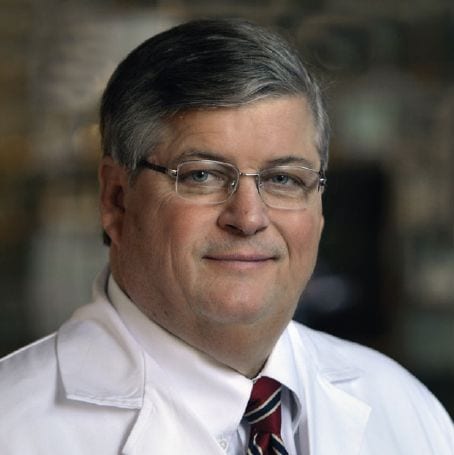Dr. David Sugarbaker, one of the most renowned mesothelioma doctors in the world, has died at the age of 65. He was regarded as the top US oncologist for pleural mesothelioma and served as the director of numerous mesothelioma programs throughout his career.
The news will sadden mesothelioma patients and their families across the country, particularly those who received his pioneering extrapleural pneumonectomy surgery, which has been known to extend the lives of countless patients.
While mesothelioma is a relatively unknown cancer, it has devastated the lives of thousands of people across the globe. Caused by asbestos exposure, this disease can take up to 50 years to develop, meaning that we do not yet know the extent of the damage caused by these tiny, needle-like fibers.
US veterans are particularly at risk of developing mesothelioma as asbestos was frequently used throughout the armed forces. It was primarily used for fireproofing and insulation but would also have been found in aircraft, vehicles, ships, shipyards, tanks, boiler rooms, barracks, buildings, military bases, and more.
Pioneer of EPP Surgery
Veterans account for almost a third of all mesothelioma cases in the U.S., and many will have come across Dr. David Sugarbaker’s EPP procedure.
EPP involves removing the entire diseased lung, its lining, local lymph nodes, and the diaphragm to ensure all cancer cells are eliminated. It works in conjunction with a ‘trimodal treatment approach,’ which combines EPP with chemotherapy and radiation.
Dr. Sugarbaker found that these post-surgical treatments improved survival rates for pleural mesothelioma patients. In 1996, a study concluded that 74% of his patients lived for at least 2 years after the EPP operation.
A Career Dedicated to Finding a Cure
Dr. David Sugarbaker studied at Wheaton College and graduated from Cornell University Medical College in 1979. He went onto complete residencies at Brigham and Women’s Hospital in Boston, and Toronto General Hospital.
In 1988, Dr. Sugarbaker began focusing his career on pleural mesothelioma research and treatment, and over the past 30 years, he has helped patients and families cope with the debilitating disease.
He founded the International Mesothelioma Program in 2002 with the focus on finding a cure for pleural mesothelioma. The program still attracts patients across the U.S. who travel to take part in clinical trials to improve medical research.
Dr. Sugarbaker’s most recent role was as director of the Mesothelioma Treatment Centre and Lung Institute at Baylor College of Medicine in Houston.
His Impact on Patients and the Medical Community
Dr. Sugarbaker was also praised for his patient aftercare. Not many surgeons are known for their bedside manner, but alongside patient consultations and operations, he made sure that his patients were comfortable after the surgery, seeing them through to recovery.
He set up various support groups for patients and their families to ensure that they received the correct physical and emotional rehabilitation.
"Mesothelioma is not just a disease of the patient. It affects the entire family."
– Dr. David Sugarbaker
Patients from all over the country choose to work with Dr. Sugarbaker as he was known as the best pleural mesothelioma surgeon. He has treated mesothelioma patients who have then gone on to survive for 10 years or more — a statistic that is unbelievable for many recently diagnosed patients.
Dr. Sugarbaker was often known among his peers and patients as ‘Mr. Mesothelioma’ thanks to 3 decades dedicated to this specialization. He will be remembered for truly caring about his patients and understanding the difficulties that come with mesothelioma.
Remembering Dr. David Sugarbaker
Our thoughts are with Dr. David Sugarbaker’s family at this upsetting time, including his brother, Dr. Paul Sugarbaker, who was a peritoneal mesothelioma surgeon until his retirement.
Dr. David Sugarbaker will be remembered for not only pioneering a groundbreaking mesothelioma treatment but also for sincerely caring about his patients and understanding the difficulties associated with mesothelioma.

